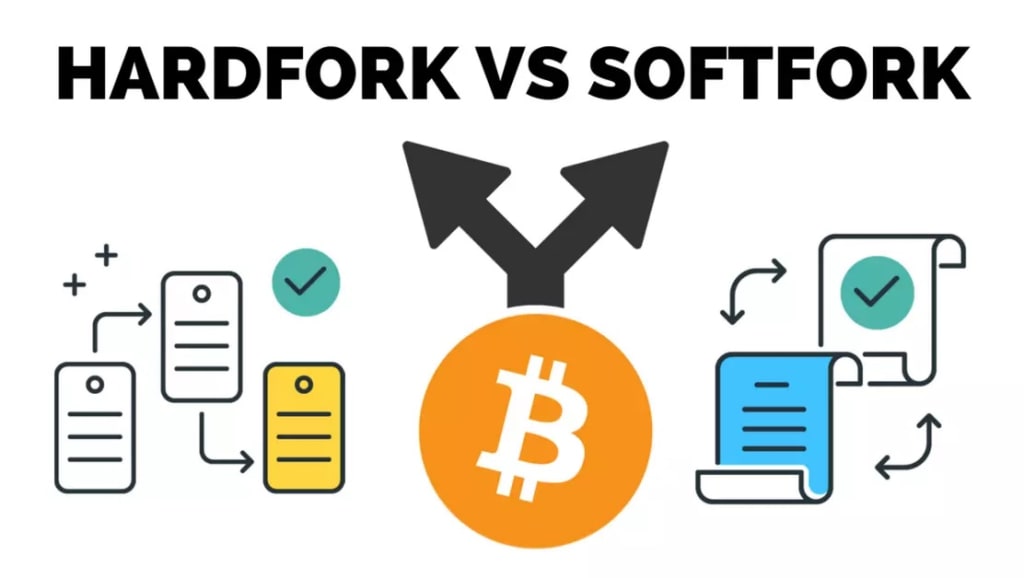The Historic Bitcoin Hard Fork of 2017
Catalyst for Altcoins and Fear-Driven Sell-offs

Although re-written and edited by a human being, the information in this article was generated by ChatGPT
In the world of cryptocurrency, few events have had as far-reaching implications as the historic Bitcoin hard fork. The Bitcoin hard fork not only paved the way for the emergence of various altcoins but also triggered a wave of fear-driven sell-offs among original Bitcoin holders. To understand the significance of this event, it's essential to delve into what a hard fork is, how it played out in the context of Bitcoin, and the diverse reactions it elicited from the crypto community.
What is a Hard Fork?
A hard fork in the context of blockchain technology occurs when a single cryptocurrency's blockchain splits into two separate chains, each following different rules. This usually happens due to a fundamental disagreement among the community about the direction of the cryptocurrency. The result is the creation of a new cryptocurrency, which shares a common history with the original up until the fork. Hard forks can be contentious or non-contentious, depending on the level of consensus among stakeholders.
The Bitcoin Hard Fork
One of the most notable hard forks in the cryptocurrency world was the Bitcoin hard fork that led to the creation of Bitcoin Cash (BCH) in August 2017. The split was primarily driven by a debate over the scalability of the original Bitcoin network. Bitcoin's limited block size was causing slower transaction processing times and higher fees. This disagreement over how to address these issues eventually led to a faction of the community supporting a larger block size, resulting in the creation of Bitcoin Cash as an alternative version of Bitcoin.

Altcoins and the Ripple Effect
The Bitcoin hard fork of 2017 marked a turning point for the cryptocurrency ecosystem. While Bitcoin remained the dominant player, the success of Bitcoin Cash spurred the creation of numerous other altcoins. Altcoins, or alternative cryptocurrencies, began to gain traction as investors and developers sought to address various limitations of Bitcoin. These new cryptocurrencies introduced innovations such as enhanced privacy features, faster transaction speeds, and novel consensus mechanisms.
The proliferation of altcoins wasn't solely a response to the Bitcoin hard fork, but the event undoubtedly contributed to a more diverse and competitive crypto landscape. As investors witnessed the emergence of viable alternatives to Bitcoin, their attention shifted from the once-unchallenged leader to a broader range of options.

Fear-Driven Sell-offs and Emotional Reactions
The Bitcoin hard fork had a significant psychological impact on the cryptocurrency community, particularly on early BTC holders. Many of these original Bitcoin investors were wary of the potential consequences of a hard fork, fearing that it could undermine the value and stability of their investments. This fear was exacerbated by uncertainty surrounding the new cryptocurrency's adoption and whether it could truly compete with Bitcoin.
From a personal perspective, I had been holding onto my Bitcoins since 2015, which had turned out to be quite profitable. The idea of a hard fork made me anxious. I worried about what it could mean for the value of my holdings. The emergence of Bitcoin Cash felt like a challenge to the original vision of Bitcoin. As well, a hard fork is a forced move, whereas a soft fork is a procedure where the developers vote on whether the process will occur or not.
At the same time, the hard fork was a necessary step for the community to address scalability issues, but it also highlighted the ideological divides within the ecosystem. While it led to the birth of Bitcoin Cash, it also opened the floodgates for altcoins that aimed to solve specific problems.
The introduction of Bitcoin Cash and subsequent altcoins shifted the narrative. Bitcoin was no longer the sole game in town. This diversification gave investors options they didn't have before. Some chose to explore these alternatives due to the uncertainty caused by the hard fork.
Conclusion: A Catalyst for Change
The historic Bitcoin hard fork of 2017 stands as a pivotal moment in the evolution of cryptocurrency. It sparked debates about scalability, governance, and the potential for new forms of digital currency. The emergence of Bitcoin Cash and the subsequent proliferation of altcoins reshaped the crypto landscape, offering both challenges and opportunities for investors, developers, and enthusiasts.
While the fear-driven sell-offs among original BTC holders did occur in the wake of the hard fork, the subsequent growth of the cryptocurrency market showcased its resilience and adaptability. As the crypto community continues to explore innovative solutions to technical and ideological challenges, the legacy of the Bitcoin hard fork reminds us of the dynamic and ever-changing nature of this transformative technology.
About the Creator
Kirby Clements
Providing technical insights, historical facts and cutting edge information on what is happening within the crypto industry.





Comments
There are no comments for this story
Be the first to respond and start the conversation.